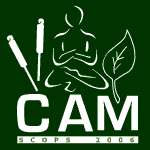Evidence-based practice in CAM
 In practice, evidence-based medicine means integrating individual expertise with the best available scientific research.
In practice, evidence-based medicine means integrating individual expertise with the best available scientific research.
Prof. Ernst thinks evidence-based practice is “essential for any form of health care.” But how many professional CAM societies incorporate it in their codes of ethics?
First, the details.
- Codes of ethics from the following organizations were reviewed.
- Association of Naturopathic Practitioners
- Association of Traditional Chinese Medicine (UK)
- Ayurvedic Practitioners Association
- British Acupuncture Council
- Complementary and Natural Healthcare Council
- European Herbal Practitioners Association
- General Chiropractic Council
- General Osteopathic Council
- General Regulatory Council for Complementary Therapies
- National Institute of Medical Herbalists
- Register of Chinese Herbal Medicine
- Society of Homeopaths
- UK Healers
- Unified Register of Herbal Practitioners
The statements referring to evidence-based practice were compared with the respective codes of British doctors and nurses.
And, the results.
- Only the General Chiropractic Council, the General Osteopathic Council and the General Regulatory Council for Complementary Therapies oblige their members to adopt evidence-based practice.
The bottom line?
Prof. Ernst concludes, “This discloses double standards in UK health care, which may compromise patient safety.”
The fact is that evidence-based medicine practice is not a priority for most CAM organizations.
Maybe I’m cynical, but even among allopathic medicine organizations it seems that political and profit considerations assume a higher priority than the day-today practice of their members. Case in point is the sweeping healthcare revisions in the US.
More on evidence-based practice is presented here, with a tutorial here.
12/24/09 12:10 JR